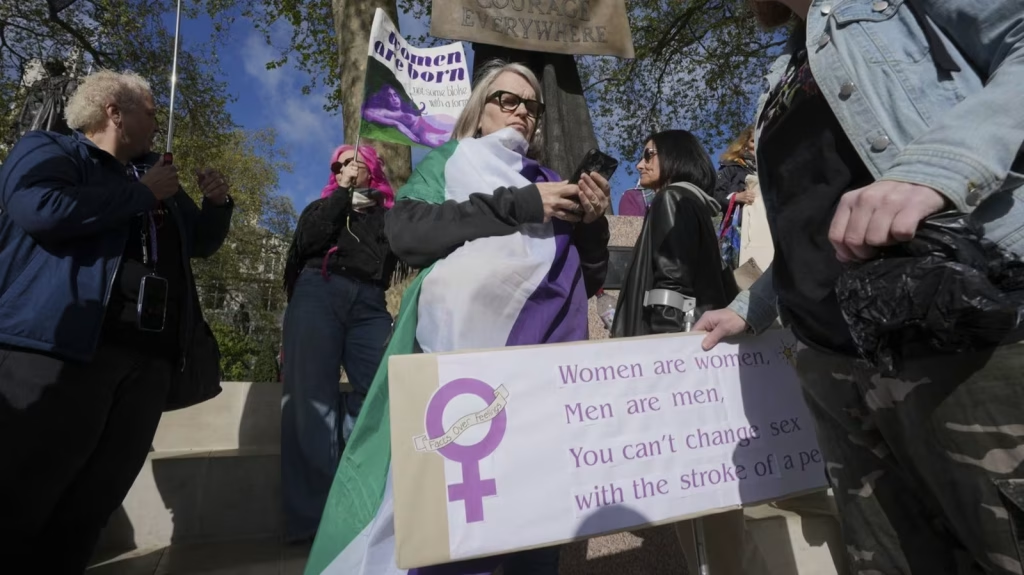Britain’s highest court ruled Wednesday that the legal definition of a woman is based on biological sex.
“The unanimous decision of this court is that the terms woman and sex in the Equality Act 2010 refer to a biological woman and biological sex,” Patrick Hodge, Deputy President of the Supreme Court, said as he delivered his judgment on Wednesday.
It will be seen as a landmark victory for gender-critical feminist campaigners who have long argued biological sex is immutable, and a blow for transgender rights activists. The ruling could have far-reaching implications for the provision of single-sex spaces and other gender-specific public services across Scotland, England and Wales.
However, the Supreme Court says its interpretation should not remove protection from transgender people, whether or not they have a Gender Recognition Certificate (GRC).
It adds: “Trans people are protected from discrimination on the grounds of gender reassignment.”
The long-running legal challenge was brought by the For Women Scotland campaign group who argue sex is biological, binary and can’t be changed against the Scottish government.
The case dates back to 2018 when the Scottish administration, led by then-First Minister Nicola Sturgeon, passed legislation to establish gender quotas to get more women serving on public boards.
It was eventually amended to count trans women with gender recognition certificates, confirming their female gender, as women for the purposes of the legislation.
Scottish courts ruled, and then upheld in the Scottish government’s favor, that sex is “not limited to biological or birth sex,” and must include those in possession of a gender recognition certificate (GRC).
But that was challenged in London’s Supreme Court by campaigners. And, in its ruling Wednesday, the country’s highest court said the meaning of the terms “sex,” “man” and “woman” in the U.K.’s Equality Act must refer to “biological sex” — with any other interpretation deemed “incoherent and impracticable.”










